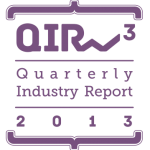
It’s a competitive landscape in the forex broker industry. Seeking ways to excel, firms are seeing value in focusing on areas that they add value and have an edge, while outsourcing much of the rest of their business. In the third quarter's Quarterly Industry Report (QIR), Forex Magnates took a look at branded white label solutions and how they are meeting the demands of today’s forex broker startups.
When it comes to launching a forex business, the most important question that needs to be addressed, is what is the most efficient way to operate the business? Stealing the phrase ‘there is an app for that’, the same applies in the forex industry where for pretty much everything there is a third party solution. Want others to handle marketing and sales, operate the dealing desk, or supervise IT? No problem, you can outsource it. Similarly, technology such as front end platforms and back office systems are all available through third party intermediaries. Finding branded white label solutions is easier than ever, and forex brokers have little incentive to manage processes of the business where they can’t bring value.
In regards to branded white labels, brokers have more choices and have the oppurtunity to avert dealing with operating their own platform, partnering with Liquidity providers, handling Risk Management , or dealing with compliance onboarding. Creating these solutions are white label partnerships. With white label arrangements, firms partner with an existing broker, and leverage that company’s technology, risk management, regulation, and liquidity, while gaining access to a branded platform to offer clients. The advantage of white labelling is that it provides an expedited solution for firms to begin offering forex trading to their clients, while minimizing the upfront costs.
Learning about the white label business, Forex Magnates spoke to brokers that offer solutions for new forex companies. There are primarily three different white label arrangements that brokers can utilize. The first is partnering with a technology provider. In this relationship, the technology provider offers the use of a branded front and back end trading system, with the broker being responsible to choose liquidity, data, and risk management procedures, as well as regulatory concerns. Such providers include Leverate, PFSoft, and MetaQuotes.
Second, are retail broker white labels. Arguably the most common, in this setup, partners are simply reselling a retail broker’s services with a branded platform, with system IT, compliance, and risk management provided for. Third are hybrid models which are generally provided by institutional firms that don’t face retail clients directly. In these relationships, a white label is provided a branded platform, connections to liquidity sources, and banking assistance. However, the white label is still responsible for all compliance and regulatory issues. In terms of risk management, depending on the white label structure, this may or may not be offered.
As Forex Magnates focused on technology providers in our second quarter research report, in this article we took a look at the options and advantages of partnering with institutional and retail firms.
What to consider
Central to our findings was that brokers were advised to have a strong understanding of what they need before going out to form a white label business. As mentioned above, brokers have the ability to focus on their strengths and outsource the rest. After calculating what is needed, the next step is choosing a broker for the white label partnership. In terms of what to evaluate among different brokers, points to consider include how reliable a broker’s technology is, what their funding options are, what jurisdictions do they accept clients from, reputation, and support service. Also to consider is pricing and overall expenses. While many brokers offer free white label deployment, ongoing expenses may make these firms more costlier over the long term.
For more considerations, the differences between broker white label geared towards retail and institutions, as well as ideas on when it makes sense to make the jump from being an introducing broker to a branded white label, readers can get fully updated on the topic in the complete article available in our brand new QIR.












